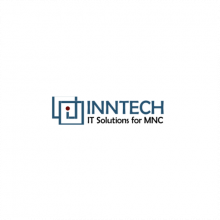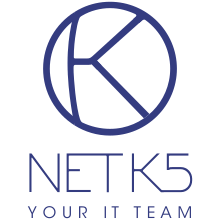
There are 4 Companies in China
that provide Hardware Services!
China’s tech sector has grown significantly in the past two decades and is making a challenge for the US to keep its long-standing position of the world leader. Companies like Huawei, WeChat, Baidu, Tencent, Qualcomm among others consolidate the country’s efforts in becoming the next-generation leader in tech worldwide.
Discover Top IT Companies in China specialized in Hardware and other related services. Find the best IT service providers for your projects.
Hardware service is an aspect of IT management that specifically deals with the physical components of information technology. The process encompasses hardware acquisition, continuous maintenance throughout its lifespan, and responsible disposal of outdated parts. Expert hardware asset managers collaborate with various departments and stakeholders across all levels within an organization. According to recent statistics, up to 30% of the total IT budget is spent on hardware, software, and related maintenance and support expenses.
Handpicked companies • No obligation to hire • 100% risk-free
Explore Top Hardware Companies in China
Your bilingual IT partner in China: we provide IT solutions to international businesses operating in China.
Services:
IT Support in Shanghai and China. English Speaking IT Experts. We help Multi-national firms and expats solve diverse IT issues in China.
Founded in 2022 and headquartered in Foshan, Guangdong, China, Wisray Studio is a software development company serving the world.
Filter Hardware Companies in China by Cities
Find the right tech company near you or from a specific city. Some of the best companies might be located in smaller cities.
Find more Hardware companies around the world
TechBehemoths is the world's most advanced and user-friendly platform to match IT Companies with real clients without hustle.
The Chinese Tech Industry: Companies and IT Industry Overview
China’s tech sector has grown significantly in the past two decades and is posing a challenge for the US to keep its long-standing position as the world leader. Companies like Huawei, WeChat, Baidu, Tencent, Qualcomm, among others, consolidate the country’s efforts in becoming the next-generation leader in tech worldwide. Lately, China and the US are battling for the 5G technology leadership, and the competition leads to an economic war that involves sanctions and restrictions for companies on both sides.
Mainly, there are three pillars of China’s tech sector growth: venture capital, innovation, and a distinct entrepreneurial culture. All these, with governmental support, managed to transform China from a mass manufacturer into a tech giant.
At the same time, Alessandro Cormio from Naturality states that China has a rapidly growing market for IT products and services, with a large and increasingly tech-savvy population. The Chinese government has invested heavily in developing its own tech industry, which has led to a vibrant and innovative tech ecosystem. However, there are also significant challenges. Chinese consumers have started to shift their preferences towards domestic brands, making it more difficult for foreign companies to gain a foothold in the market. In addition, habits and the market in general are very different to handle and develop when compared to the West. I always suggest NEVER trying to enter this market with the same strategy and approach as Western countries.
Why You Should Work With Chinese It Companies
As mentioned above, one of the three pillars of China’s tech sector is distinct entrepreneurship. In China, IT companies and businesses in general work differently from the traditional Western style. It’s about social digitalization, where companies don’t need direct human interaction anymore - everything can be done remotely. Even though freelancing is a very well-known practice in the West, Chinese IT companies use corporate freelancing, allowing professionals to focus on project tasks from different parts of the country.
Chinese companies don’t have any more language barriers when it comes to communication, and project management is at its highest. Tech specialists are doing their job properly and fulfilling the exact requirements and instructions mentioned by clients. Honestly, this is no surprise, since discipline is in the Chinese blood for centuries.
Another reason for working with Chinese IT companies may be an abundant workforce. While European and US markets mainly confront a workforce shortage, it’s not the same for Chinese companies, where tech specialists are struggling to get a place in an IT company.
What Should You Be Aware of When Working With Chinese IT Companies?
On the other hand, the government controls all business processes, especially with foreign clients and investors. As a potential client, you will meet certain bureaucratic barriers that will cut the business’s appetite. The number of papers that need to be signed overlaps several times, and the number of papers you need in Europe and the US. But after having everything done, all will go smoothly.
The prices may vary from region to region and company to company. It depends on how well a region or a company performs on the national level, which still remains the main indicator for Chinese IT companies in terms of notoriety. That is a good idea to be aware of what regions are likely to provide better services, and in which field.
To this answer, Alessandro Cormio adds that due to the very different market culture and habits of China, to better enter the market, companies need to be aware of how differently things work in China.
How Reliable Are Chinese IT Companies
The same thing we could say about reliability. Since the country has more than 15,000 IT companies, it wouldn’t be fair to rate all companies under the same figures. Companies located in more developed regions and cities perform better, are more reliable, and have a higher credibility rate, while other companies from less-developed regions and cities are nameless, and don’t have enough experience to rate their experience.
On the other hand, in China, a nameless company can become a world brand overnight. It depends on the product they are working on and the technologies used. Since innovation is the second Chinese tech pillar, any company can become famous, rich, or both if it uses the right combination.
How Does the Chinese IT Sector Relate to the Neighboring Countries?
The Chinese tech sector outnumbers all neighboring countries. However, in terms of general performance, it competes with the South Korean IT sector and the Japanese one. The internal market is enough for Chinese companies to grow and innovate, so, presumably, there is no big need for exporting IT services, like in the case of Korean and Japanese companies. However, contacting foreign entities empowers and stimulates the innovation processes in a country.
Chinese Business Environment: Complex But Rapidly Growing
China has a complex BUT rapidly evolving business environment. On one hand, it is the world's second-largest economy (projected to be NO. 1 in some years) with a rapidly growing consumer market. On the other hand, because of the significant state ownership and control, it turns out to be a challenging legal and regulatory environment. Working in marketing for Chinese companies looking to go overseas, it's also interesting to feel and understand the complexity and huge potential, on a scale, that this market has. China's rapid economic growth and expanding middle class offer significant opportunities for companies and talents willing to invest the time and resources to establish a strong presence in the market.
At the same time, the difficulty of opening a new IT company in China is appreciated as quite open, with wide possibilities, but it is getting more and more challenging.
How Does the Chinese Government Help the IT Sector?
While it's difficult to understand all subtleties and Chinese laws all of a sudden, Alessandro Cormio, the founder of Naturality Digital - a reputable IT company with offices in China, says that there are three main directions on this topic:
- Investment in research and development: AI and 5G on top of all.
- Support for entrepreneurship: Plenty of initiatives to support entrepreneurship and innovation, including tax incentives, funding for startups, and the establishment of innovation hubs and incubators.
- Encouragement of investment: establishment of special economic zones and other incentives to attract domestic and foreign companies.
Shenzhen and Shanghai - The Chinese Heaven for IT Companies
Shenzhen has been the fastest-growing city in the world in the last few years, and it keeps pushing forward. At the same time, Shanghai is the most populous and international city in China.
Alessandro considers that both should definitely be considered among the top cities in the world for IT development.
About the Chinese Local Talent Pool
Not too easy to answer this question. From my point of view, there's still a lack of people with high skills in certain things. Too many tend to specialize too much and follow a specific standard, not beneficial to flexibility and creativity.
This article was created together with Alessandro Cormio, the Co-Founder of Naturality Digital, which is one of the leading digital marketing agencies with offices in Italy, Switzerland, and China.
What is Hardware and what are its benefits for your projects?
Hardware service is an aspect of IT management that specifically deals with the physical components of information technology. The process encompasses hardware acquisition, continuous maintenance throughout its lifespan, and responsible disposal of outdated parts. Expert hardware asset managers collaborate with various departments and stakeholders across all levels within an organization. According to recent statistics, up to 30% of the total IT budget is spent on hardware, software, and related maintenance and support expenses.
Primary Categories of Hardware Asset
Hardware asset are generally grouped into four primary categories:
- End-user devices - Employees use a variety of devices in their everyday work, including computers, smartphones, tablets, SIM cards, and other similar gadgets.
- Network and telecom hardware serve as support equipment for facilitating both digital and analogue communication. This category includes various devices such as routers, load balancers, switches, as well as telephone and video conferencing systems.
- Data-center equipment are hardware that enables the effective functioning of data centers. This includes servers, utilities, and security devices.
- Peripherals are essential equipment that provides support in modern office environments. They come in various forms such as scanners, printers, monitors, keyboards, headsets, projectors, and even cables and adaptors.
What are the Benefits of Hardware Services
Business hardware may not always appear to be a secure investment. It tends to lose value rapidly and require regular maintenance and occasional repairs. However, implementing effective hardware asset management can help reduce these downsides.
The advantages of hardware services include the following:
-
Improved loss prevention - Loss prevention is enhanced through improved accuracy in hardware catalogues. These catalogues enable effective tracking of equipment, identification of missing parts, and mitigation of risks. Additionally, asset tagging, ownership records, and location tracking facilitate the identification of idle assets, ultimately reducing theft risk.
-
Enhanced productivity - Implementing a strategy for managing hardware assets, employees are able to efficiently handle equipment, prevent inefficient processes, and automate procedures. This ensures accurate inventory and distribution while also preventing asset issues before they arise.
-
Optimized usage - Effective management practices for hardware and well-structured maintenance schedules ensure the proper utilization of company equipment. Also, accurate asset inventories help prevent unnecessary spending, ultimately increasing the value of hardware investments.
-
Increased security and compliance - Managing hardware assets offers a thorough inventory of all hardware assets and assists security teams in securing hidden assets, spotting vulnerabilities, and verifying policy compliance.
-
More-efficient lifecycle management - Businesses benefit from HAM's comprehensive asset lifecycle control, which facilitates informed decision-making for asset managers regarding vendor contracts, servicing options, and replacements.
- Cost savings - Here are a few ways that managing hardware assets can help your company save money:
- Lower maintenance expenses;
- Hardware budgets that are more precise;
- Minimal hand work;
- Less hardware expenditure;
- More effective disposal methods.
When organizations invest in effective hardware asset management, they gain lots of advantages. These benefits include saving time and money, as top-quality HAM systems and strategies quickly prove their worth.
Are you in search of a hardware asset service provider? Your search ends here with TechBehemoths! Our platform has a vast selection of over 323 worldwide companies that provide effective hardware asset management.
To make your decision easier you can use smart filters based on location, price, and reviews. In case you require additional help, simply submit your project and our team will assist you in finding the ideal service provider for your specific needs.



